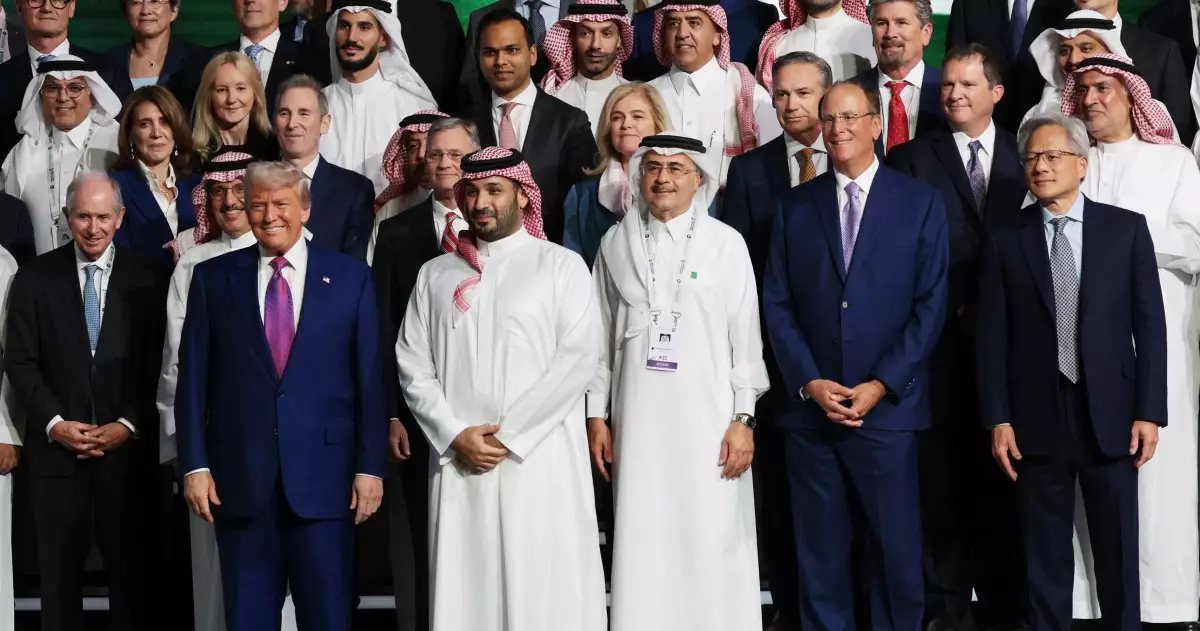In the dynamic realm of artificial intelligence (AI), Nvidia has established itself as an undeniable leader in the development of AI chips. This dominance, however, is not without its challenges. Recently, Nvidia has adeptly maneuvered through political and regulatory hurdles that threaten its supremacy. The tech company has benefited significantly from the U.S. government’s recent decision to lift restrictions on AI chip exports, a move that allows Nvidia to solidify its stance against rising competition, notably from companies like Huawei.
The geopolitical landscape in which Nvidia operates is ever-evolving, and the U.S. government’s mindset towards technology export controls has shifted dramatically. The annulment of the Artificial Intelligence Diffusion Rule—a law that would have imposed stringent limitations on the export of AI technology—signals a major victory for Nvidia and other tech giants. This rule change not only alleviates some of the burdens placed on U.S. companies but also reaffirms the notion that innovation should not be stifled by excessive regulation.
Nvidia’s Political Navigation
Nvidia’s current trajectory owes much to its engagement with U.S. politics, particularly under the Trump administration. The company’s leadership, especially CEO Jensen Huang, has fostered a symbiotic relationship with U.S. officials, recognizing that strong political ties can provide essential advantages in a competitive landscape. By actively seeking investments from various countries, including Saudi Arabia, Nvidia is not only positioning itself as an industry leader but is also influencing geopolitical dynamics—re-establishing the U.S. as a powerhouse in AI technology.
This recent partnership with the Saudi Crown Prince, alongside Trump, underscores a larger narrative in the world of AI and tech innovation: collaboration and investment are essential for continual growth. Today’s technology thrives on global partnerships, and by engaging with influential leaders, Nvidia is crafting opportunities that can lead to substantial economic benefits for the U.S.
The Threat of Competition
Despite Nvidia’s current dominance—holding approximately 90 percent of the AI chip market—the emergence of alternative chip manufacturers is a pressing concern. Huawei, with its Ascend AI chipset, reveals that competition is not just imminent; it is already here. The U.S. government’s heavy-handed restrictions against Huawei can be viewed as both a protective measure for Nvidia and a cautionary tale for other companies looking to penetrate the U.S. market. Threats to Nvidia’s lead are serious, and the company must remain vigilant against any shifts in the competitive landscape.
Nvidia’s condemnation of the AI Diffusion Rule reflects the company’s awareness of how critical retaining its market share is to sustaining growth. With increasing pressures from other nations to innovate and forge their paths, Nvidia’s strategy must be agile and robust.
The Future of AI Regulation
The U.S. Department of Commerce (DOC) has indicated that while the AI Diffusion Rule has been rescinded, they plan to unveil new guidelines to safeguard U.S. technology. This move will bring relief to companies like Nvidia, but it also calls for vigilance as new regulations could emerge. The DOC’s emphasis on not undermining diplomatic relations with global partners suggests a more measured approach in future regulations, one that may allow for continued innovation while maintaining national security.
As the U.S. looks to reposition itself as a dominant player in the global AI landscape, Nvidia’s role becomes even more pivotal. By engaging proactively with both regulatory bodies and international stakeholders, Nvidia stands at the forefront of not just technological advancements but also the crafting of policies that support growth and innovation.
The Endgame: Staying Ahead of the Curve
While Nvidia has successfully navigated current obstacles to its AI chip dominance, future challenges will undoubtedly arise. The interplay between technology and politics will only intensify as other nations continue to invest heavily in their technological sectors. Nvidia’s ability to innovate while engaging effectively with policymakers will be critical in maintaining its leadership position.
Through strategic partnerships and savvy political engagements, Nvidia is not just surviving; it is mastering the art of staying ahead in the ever-competitive arena of AI technology. The company’s foresight in anticipating regulatory changes and fostering global collaborations will be instrumental in shaping its future, allowing it not just to defend its market share but to expand its influence worldwide.

